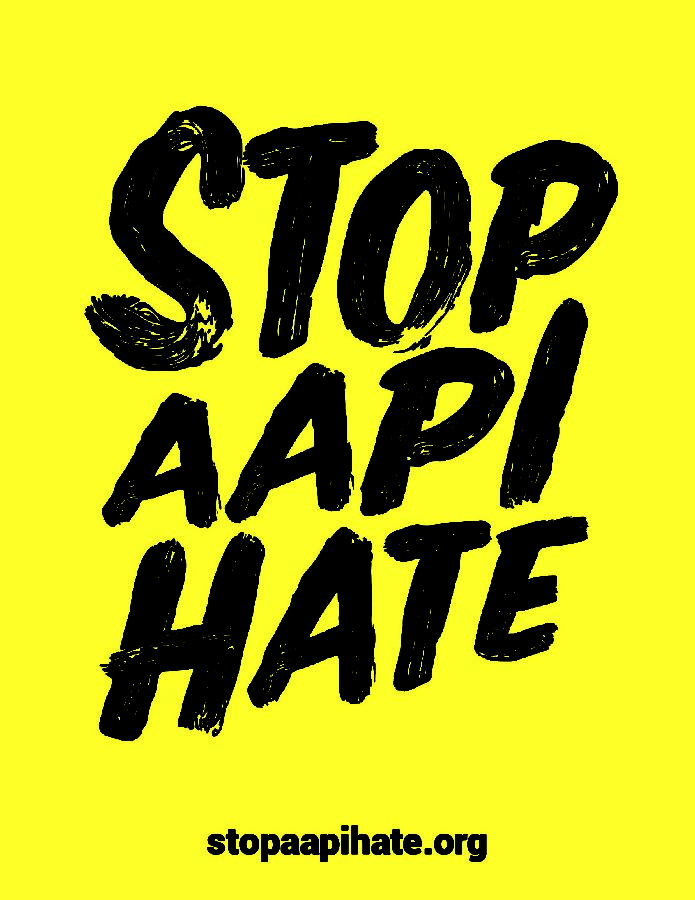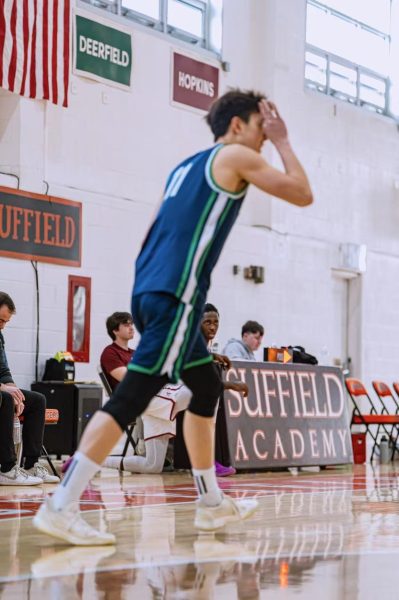Students Alarmed by Spread of Anti-Asian Hate Crimes
As Covid-19 has brought loads of uncertainty and fear across the world, Asian-Americans, on top of that, have to deal with a different kind of fear: the increase in hate crimes.
Hate crimes against Asian-Americans have been rising at an alarming rate. Because Covid-19 was first discovered in China, many Asian-Americans have been blamed for the cause of the pandemic, and as a result have been targeted in violent crimes.
Innocent Asian elderly people have been attacked and beaten in broad daylight, and the recent Atlanta shooting is shedding light on the violent consequence of the pandemic originating in Wuhan. The use of racist and derogatory terms such as “Kung Flu” and the “Chinese Virus” continue to drive blame and hate towards Asians.
According to PBS, hate crimes against Asian-Americans increased by 150 percent from 2019 to 2020. Stop AAPI Hate (Asian-American and Pacific Islanders) recorded around 3,800 hateful incidents in 2020. Although Covid-19 originated in China, Asians from all ethnicities are being targeted.
On March 16, a white man, 21-year-old Robert Aaron Long, shot and killed eight people — six of them were Asian — at three different spa locations in the Atlanta area. Following this incident, there have been many rallies across the country, including ones in Atlanta, Chicago, New York City, and San Francisco to “Stop Asian Hate.”
Jeremie Ng, a junior from Hong Kong and Co-Leader of the Asian Alliance Club, spoke about the devastating impact this past year has had for her. Her decision to not return to school this year, and instead take classes remotely all year, was impacted by the increasing hate crimes.
“It is very scary and heartbreaking, only one of the few reasons that made me decide not to come back at all to the U.S. this year,” Jeremie said.
She believes that racism against Asians is severely downplayed by the media and is contributing to the ongoing hate.
“It happens every single day, but no one really knows because the media doesn’t cover it unless you specifically follow Asian pages on social media like I do,” she said.
Jeremie explained that her entire opinion about the U.S. changed recently.
“It just hurts a lot knowing that this could happen to my parents, but it also just hurts reading about it and seeing elderly people dying because of it,” she said. “Genuinely I don’t even want to step foot into the U.S. anymore because it hurts that much.”
She credited former President Donald Trump as one of the reasons behind the rise of Asian hate crimes.
“He incited these hate crimes towards Asian people by calling it the ‘Chinese virus’ or the ‘Kung Flu,’” Jeremie said.
Jeremie is worried about her safety and her place in America in the future. “I just don’t feel safe at all … it is a risk I am not willing to take.”
There are many ways non-Asians can support Asians. Jeremie said it is important to listen to your Asian friends, support local Asian business owners, be more self-aware, and help elderly people in need.
Na Kyung Lee, a senior from Seoul, finds it “beyond unacceptable” that Asians are being targeted across the country.
“The more I read about it, the more I could not believe,” she said. “It just shows how the indifference to hate crimes against Asians is prevalent, as much as the violence itself in the States, and that is what’s perpetuating the hate crimes.”
Na has personally experienced racist encounters. She was called “the Flu” and heard someone tell her to “Go back to your country” in Boston last spring.
After this year, Na has been forced to reconsider her identity as a member of a minority in America. She told The Willistonian, “I have never been a minority in my country. I have never experienced aggression towards me because of my race in my country.”
Unfortunately, in that moment in Boston, Na felt that her safety was being threatened. She is fed up and scared for her future.
“Asian rights have been disregarded continually, but the tension intensified because of public racial targeting of the last administration and biased portrayals in media,” she said. “I was deeply frustrated and frightened that Asians are victimized … and still there seems to be no sign of it getting better.”
Na said it feels like a “lifelong mission” to cope with her identity of being an Asian studying in America.
Vishal Ramvelu, a junior from Dhahran, Saudi Arabia, agrees Asians should not be receiving hate.
“I feel that they are getting undeserved hate and shouldn’t be receiving any different treatment than before Covid,” he said.
Kana Kitano, a junior from Tokyo, is more conscious about her identity now. “I feel very scared about the Asian hate happening in the U.S.,” she said. “I have not experienced it yet, but I have been more careful when going to town or other places.”
Owen Fu, a junior from Shandong, China, has a hard time accepting the reality and brutality of the violent hate crimes against Asian elderly people.
“I have grandparents, and I never want to see things like this happen to them,” he said. “The elders are the most respected group in a family [in Asia] and beating them and hating them” is a tragedy.
Although Asians are not the ones perpetuating the crimes, he does believe that the silent majority should take some responsibility.
“Asians look quiet, but that’s just on the outside,” he said. “All of us got heart,” he said, and when Asians unite, “we are strong.”
He also emphasized that racism against Asians is often overlooked.
“For many years, I have heard many stereotypes about Asian students,” he said. “A lot of people just think it is funny to do some of these things, but it is not at all. People should know better.”
As an Asian studying in the U.S., these past few years have shifted my views on the country. I’ve enjoyed the opportunities I’ve had here, but it’s obvious that it does not deserve to be put on such a high pedestal by others. Although it may seem like freedom, sunshine, and rainbows, America is built on a deep-rooted history of systemic racism and brutality towards those seen as “minority” groups.
The ignorance I’ve seen in the past years, especially with how Americans handled Covid, has really opened my eyes. It is not the great country I saw in the past, and it has made me reconsider my future here.
While most other countries successfully controlled the spread of Covid through the cooperation of wearing masks, America failed to unite. Instead of acknowledging their own selfish choice of not wearing a mask, too many people decided to put the blame and responsibility on innocent Asians.
Erin is a senior from Taipei, Taiwan. She enjoys playing volleyball and watching "The Bachelor" during her free time.











